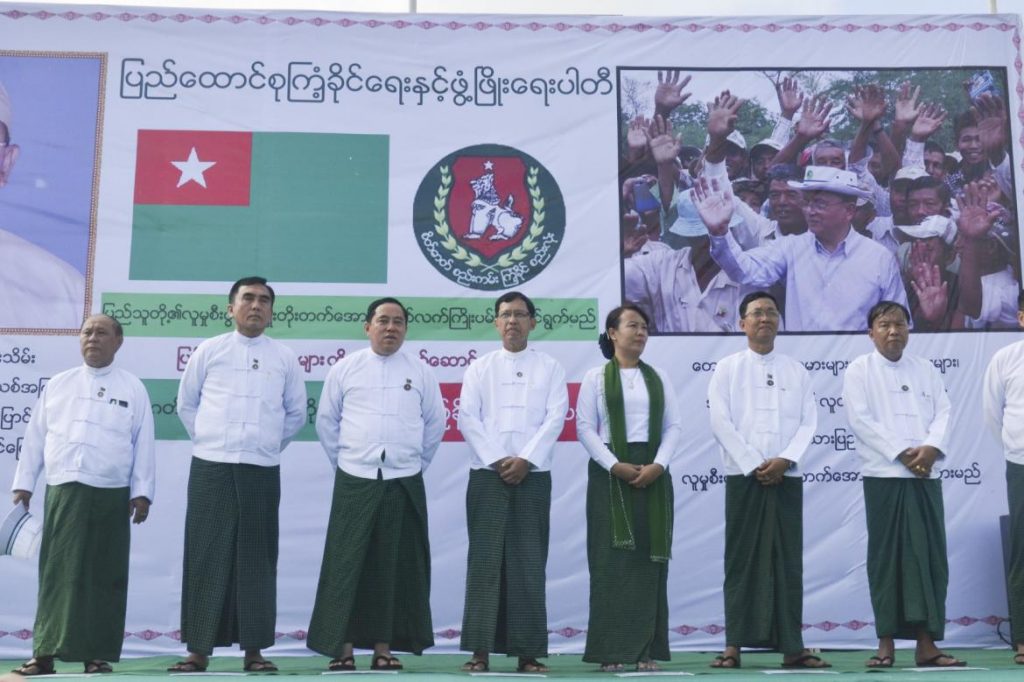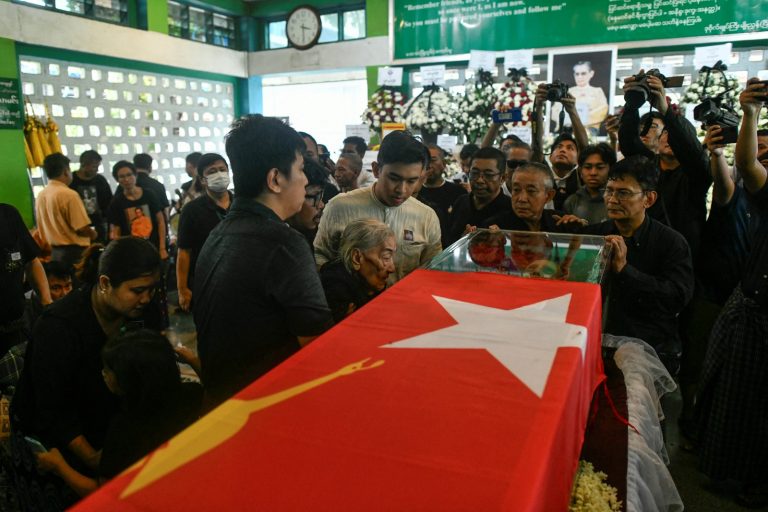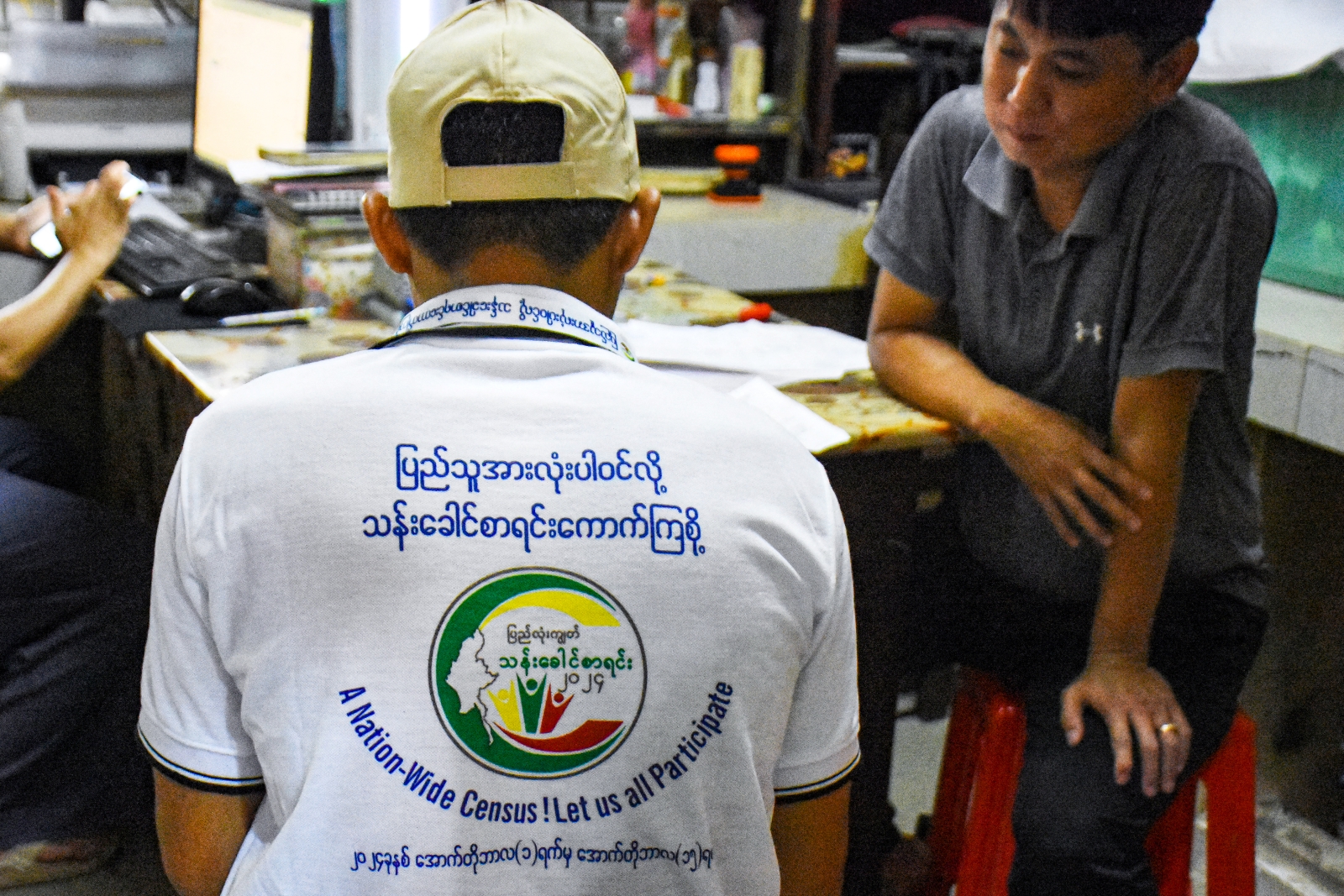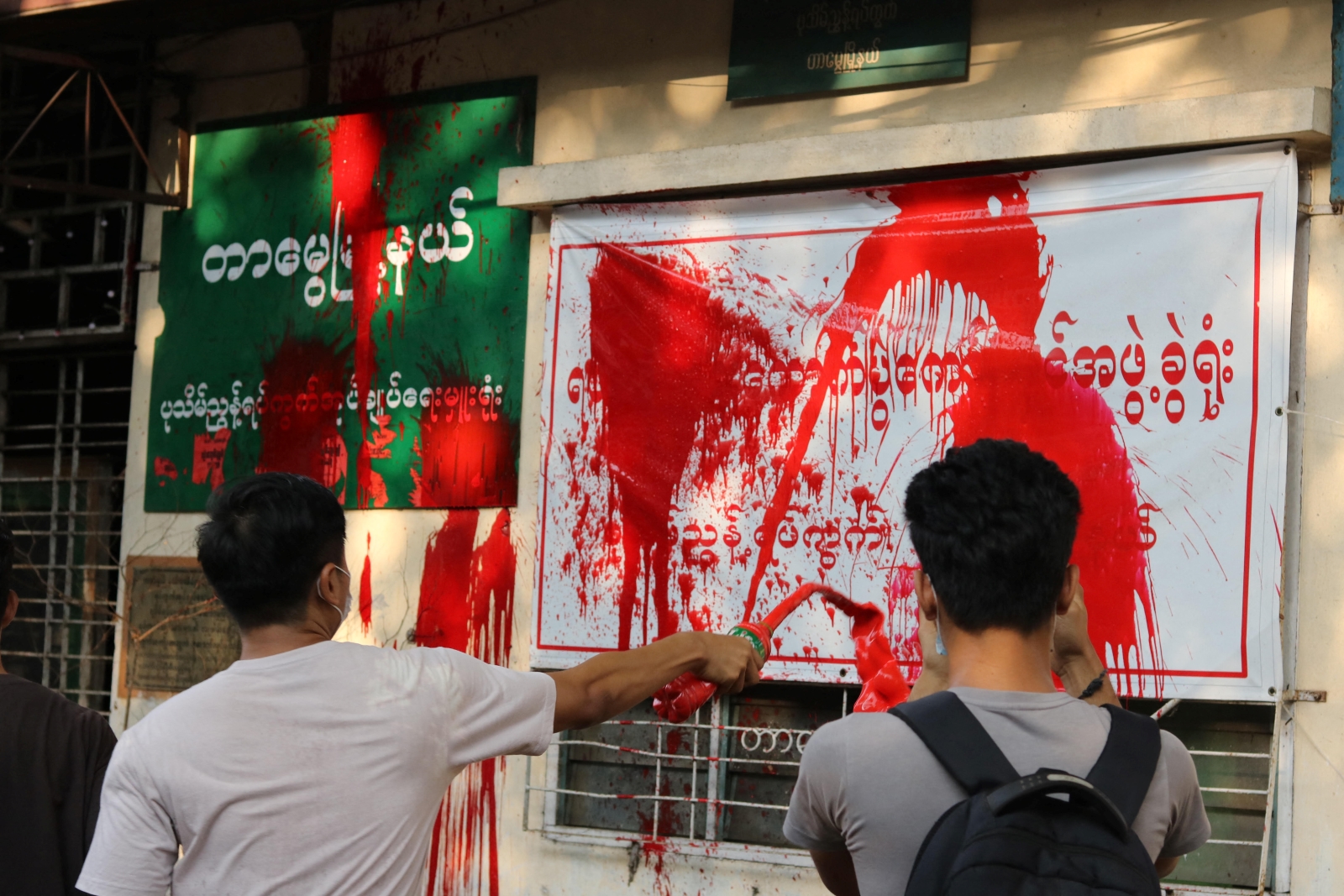With election day drawing near the ruling Union Solidarity and Development Party is using every trick in the book to avoid a humiliating defeat. Frontier counted at least ten nasty tactics for manipulating the vote outcome.
By FRONTIER
1. Pre-voting
In 2010 pre-votes tainted the election result. It was unclear how these votes were garnered, and there were credible reports of large numbers of pre-votes brought in late at night to ‘correct’ the result in the USDP’s favor. All this happened after the other votes had been counted.
Pre-votes are likely to play a role again in this year’s polls, with some analysts predicting that 10 percent of the total number of votes might be cast before election day, thereby lowering the number of votes the USDP has to win to maintain some kind of a power base in parliament.
But there’s good news as well. New bylaws that have been adopted stipulate that pre-voting has to be observed by candidates and their representatives. Also, the pre-votes must be submitted before the polling stations close and be counted in the presence of observers, so the regime’s old secret ace up the sleeve may not be so secret this time round.
2. Pressuring employees
Controlling the paycheck of factory workers and civil servants might help the USDP to advance its cause. Take for instance the case of Democratic Party chairman U Thu Wai, who ran in Yangon’s Mingalar Taungnyunt township in 2010. The party leader complained that his USDP opponent, the then Minister of Labour U Aung Kyi, was abusing his power by pressuring government employees and state enterprise workers to pre-vote for him.
Support more independent journalism like this. Sign up to be a Frontier member.
During election day U Thu Wai seemed to be the clear favorite. In the early evening he was firmly ahead; he proudly showed the numbers party monitors had brought back from the polling stations. But later that night the pre-votes were brought in and the battle was lost.
In 2015 the voting list might be riddled with inaccuracies, although the Union Election Commission actually has an accurate list of civil servant voters. They and their families number about 5 million voters. Civil servants will cast their vote a week before the elections, on pay day. One wonders how many of them will be brave enough to risk their salary and the livelihoods of their (extended) families by not voting USDP.
An analysis of the election by a certain Go Shay Lay that is being circulated in both Burmese and English (it has been translated by a Karen National Union central executive member) alleges that civil servants who vote USDP will be awarded with free food, clothes and medicines from government shops, on the recommendation of the administrative officer.
At the bottom of the analysis is a long overview of district, state and regional election officials. All sub-commissions are led by army men with the rank of captain or major. And what about enlisted men? Soldiers are employed by the state and will vote in polling stations on military bases, under the watchful eyes of their colleagues and commanders. The UEC says monitors will be allowed to enter the army camps to witness the voting.
3. Intimidation
On July 20 it was announced that some 40,000 auxiliary police officers would be hired and trained for the elections, with one officer per polling station to “reinforce security” and provide “early warnings” in case of troubles. The officers will not carry weapons, nor have any special powers.
The Carter Center, a US based human rights watchdog, has expressed concern about this massive deployment of election security personnel. National League for Democracy (NLD) spokesman U Nyan Win said he hoped the move was “well intentioned”.
Whatever the government’s reasoning behind the auxiliary force, the move will in practice favor the ruling USDP party. The urban population, often better educated than those living in the hinterlands, is unlikely to change its voting behavior, but in rural areas, where fear of authorities is still the norm, the presence of policemen at the polling stations might cause people to make the ‘safe choice’ and vote USDP. As most international observers will monitor the elections in easily accessible urban areas, there’s no telling what will happen out of sight, in far flung ethnic areas.
Another potentially intimidating measure is the issuing of voting passes. Initially touted by the UEC as useful to those who might have lost their identity cards in the floods, the ‘cards’, which will be distributed one week ahead of the polls now mainly serve to enhance the feeling that the authorities are watching or might even know what you vote. This might not be true, but in rural areas where education is lacking and old style authoritarian governance is still a reality voters might very well believe that voting for the opposition might have negative consequences. Several international organizations who are assisting in the preparations of the elections have advised against the voting passes. To no avail.
That the voting passes will serve as replacement identity cards for flood victims turns out to less than true. The voting cards are not much more than a slip of paper, without a photo. For election officials it will be next to impossible to discern if somebody with a voting pass but without ID is bonafide or not.
4. Less ethnic voters on the list = better chances for USDP
In the States ethnic parties are strong, as a high percentage of the population is of ethnic minority, non-Bamar descent. The removal of entire villages from the voting lists has increased the chances of the Bamar-centric USDP doing well in these areas.
Two examples spring to mind. In Kya-In Seikkyi township, Kayin State, more than 20,000 people, mostly ethnic, were removed from the voting list and thereby stripped of their right to vote. The chair of the Kayin State election sub-commission claimed that security in 33 villages in the township could not be guaranteed. He pointed his finger at the New Mon State Party, an ethnic army that signed its latest ceasefire with the government in 2012. But NMSP official Naing Khin Aye told the Myanmar Times that his organization had guaranteed security in the November 8 elections.
Later on another 80,000 voters in the same state were removed from the list in Hpa-an, Hlaingbwe, Thandaung Gyi, Kawkareik, Myawaddy and Papun townships. Again the state election commission argued that security concerns merited the removal of ethnic voters. Local parties disagree. They say that in these areas, ceasefires are in place and that the election commission deliberately excised ethnic voters to skew the results.
5. Playing chess with candidate bans
After initially disqualifying 124 candidates, many of them Muslims, the Union Election Commission informed 11 Muslim candidates on September 21 that their appeals had been successful and that they are allowed to run.
The decision came after pressure had been mounting on the UEC for some time. Earlier in September, nine embassies, including that of the United States, issued a statement in which they expressed concern about the prospect of “religion being used as a tool of division and conflict during the campaign season”. Apparently the statement sent shockwaves through the government.
Allowing 11 Muslim candidates to run seems to be a positive move, but Abu Taher, an independent Muslim candidate in Buthidaung Township who was himself rejected, begs to differ. “Most of the candidates who are now allowed to run, are on the ballot in Yangon Region,” he said. “They will compete against NLD candidates. To make the NLD fail, that is their strategy. I am not trusting [the UEC’s] intention. They are not acting according to the law.”
6. Disenfranchising 1 million voters
In the 2010 elections over a million Rohingya holding white cards were allowed to vote. The USDP expected them to return the favor. Five years on Myanmar is in the grips of a anti-Muslim frenzy stirred up rightwing Buddhist monks and Rakhine Buddhist chauvinists. Strong anti-Muslim sentiments has dominated the political discourse, prompting the government to change its tune.
In February the government announced that all white cards were going to be revoked, thereby rendering about 1.5 million people – former voters and over a million Rohingya – disenfranchised. Giving the Muslims another kick earns the government kudos in the current political climate. USDP officials can afford to be more outspoken than NLD-leader Daw Aung San Suu Kyi, who still has the international community, her backers for over two decades, to cater to and her human rights image to protect.
While depriving the Rohingya of their voting rights was a popular move, it also removes 1 million voters, who would have likely voted for a Muslim candidate, from the equation. The NLD and Daw Aung San Suu Kyi are not liked in Rakhine State, so the USDP is clearly hoping it can win a number of seats in the conflict ridden province.
7. Courting influential monks
The influence of the Committee to Protect Nationality and Religion, Ma Ba Tha, is growing. The nationalist monk organization has been pushing its agenda through activism and drafting four controversial laws aimed at protecting religion and race.
Several news outlets have alleged that Ma Ba Tha is in fact connected to the USDP, and that recently deceased party stalwart U Aung Thaung played a central role in coordinating these efforts. But these allegations have not been substantiated with actual proof.
Nonetheless, the high approval rate of Ma Ba Tha and the rising tide of nationalism makes some politicians eager to associate themselves with the monk movement. On August 31, U Lin Zaw Tun, a former Tatmadaw colonel who will run for parliament for the USDP in Shan State, announced that he had donated K40 million to Ma Ba Tha. Controversial monk U Wirathu accepted the donation on behalf of the organization.
8. Deep pockets, campaigning softly
Candidates in the 2015 elections can only spend K10 million on their campaigns, the Union Election Commission announced. But before the start of the campaign period on September 8 they were free to spend as much money from their own pockets as they wishes.
U Lin Zaw Tun was not the only one to dig into his savings to woo voters.
U Soe Thane, a Minister at the President’s Office, spread the money around before September 8 in his constituency of Bawlakhe, in Kayah State. According to villagers U Soe Thane has provided them with water distribution, satellite dishes with one year subscriptions, and a soccer match. The Minister, who is running as an independent, did not break any election rules, the UEC claimed, while an official at the Minister’s Office stated that the money was donated by companies and individuals and was not related to the elections.
U Soe Thane has a fair chance of getting elected for parliament, as his constituency is small and a large number of soldiers is stationed in the town. Kayah State is probably the only state where the USDP expects to do well.
Does money matter in politics? It does, and those connected to the ruling elite in the last couple of decades clearly had more opportunities to earn money than those in the opposition or languishing in prison.
9. Confusing the people
In 2010 the elections were deemed fraudulent by international observers. ANFREL wrote a report summing up the tricks the government had used to manipulate the vote: from pre-votes, to coercion and changing results in the middle of the night, when the numbers were transferred from one form to another.
This time around there will also be monitoring via mobile phone. There are now three mobile operators instead of one, and mobile phone penetration and access to internet (with Facebook being the clear favorite among Myanmars) has skyrocketed. The number of digital witnesses has increased, but the 40,000 auxiliary police officials hired specifically for the elections might try to limit phone use in polling stations.
What is the likelihood of the network going down in rural areas on polling day? Some analysts think the sudden absence of mobile communications is what everybody, including international monitors, should plan for, as the government has ‘red buttons’ they can press if they want mobile and internet communications to cease.
Another way of confusing observers and the populace, and thereby increasing the possibility to play games without anybody knowing it, is by creating a dodgy voting list. UEC chairman U Tin Aye has admitted the voting lists are deeply flawed. But how can they be this flawed after the 2010 general elections, the 2012 by-elections, the YCDC election and the recent census? Is chaos a necessary pre-condition to allow for fraud to take place in this information age? Clearly, a tidy out in the open process is not going to be good for the unpopular former military men of the USDP.
10. Controlling the election commission
UEC chairman U Tin Aye is a former army man and a close ally of former senior general Than Shwe. All the leading officials in the state, region and district election commissions are current or former army men. The election commission controls the voting lists, rejects or admits candidates, and handles complaints. There are serious doubts about its independence. If these doubts hold, the democratic opposition and the ethnic parties are at a serious disadvantage.
Title photo: Ann Wang / Frontier







